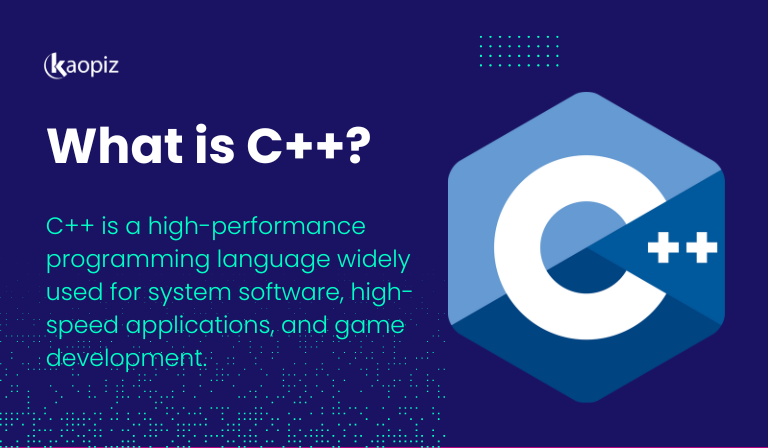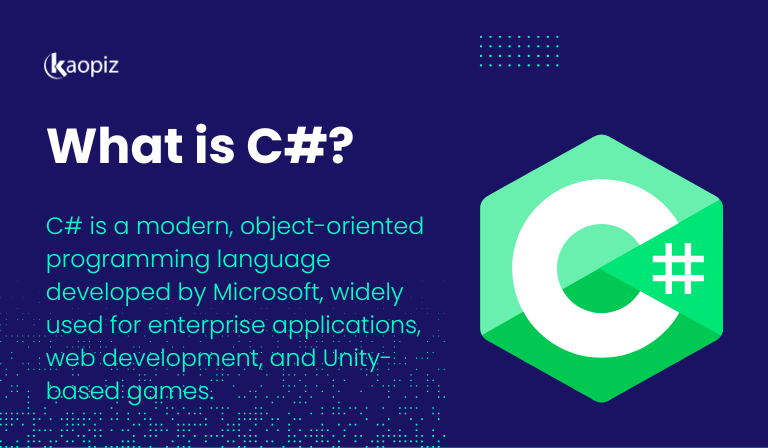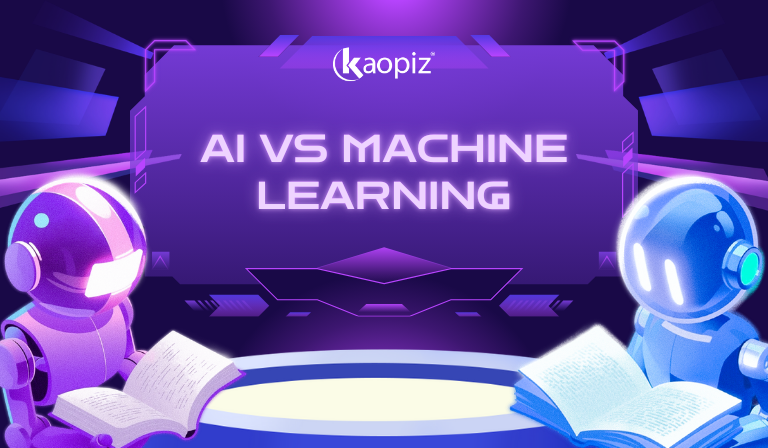C# vs C++: Key Differences and Which Language to Choose in Singapore (2025)
Choosing the right programming language is one of the most critical decisions for any software project. Among the many options available today, C# and C++ stand out as two of the most widely used and influential languages in modern development. Yet, many business leaders and even developers still ask: “Are C# and C++ the same?” or “Which is better — C++ or C#?”
For Singapore businesses and enterprises, the choice between the two isn’t just technical. It affects development speed, hiring costs, scalability, and total cost of ownership (TCO). In this article, we compare C# vs C++ benchmark, highlight their key differences, and help you decide which language is the right fit for your projects in 2025.
Table of Contents
- What Is C++?
- What Is C#?
- C# vs C++: Key Differences
- C# vs. C++: Which Programming Language Should Singapore Businesses Choose?
- Common Challenges for Singapore Enterprises & How Kaopiz Solves Them
- Top Offshore Development Practices for C# & C++ Projects
- Why Choose Kaopiz for Your C# or C++ Development Projects in Singapore?
- Conclusion
- FAQs
What Is C++?
C++ is a general-purpose programming language created by Bjarne Stroustrup in 1979 as an extension of the C language. It introduced object-oriented programming (OOP) features to C, making it more powerful and versatile while retaining C’s low-level efficiency and control.

Over the decades, C++ has become one of the foundations of modern software development, influencing many newer languages, including C#, Java, and Rust.
Strengths of C++:
- High performance: Offers direct access to memory and system resources, making it ideal for applications where speed and efficiency are critical.
- Hardware-level control: Allows developers to fine-tune performance and manage system resources precisely.
- Versatility: Supports multiple programming paradigms (procedural, OOP, and generic programming), giving flexibility for different project types.
- Large ecosystem: Backed by decades of libraries, frameworks, and community knowledge.
Common Use Cases of C++:
C++ remains widely adopted in industries where performance and stability are non-negotiable:
- Operating systems (Windows, macOS, Linux components).
- Embedded systems (IoT devices, automotive software, robotics).
- High-performance applications (finance, simulation, scientific computing).
- AAA game development (used in engines like Unreal and CryEngine).
For enterprises in Singapore, C++ is often the go-to choice for fintech platforms, cybersecurity tools, trading systems, and large-scale simulations where milliseconds and memory efficiency matter.
What Is C#?
C# (pronounced “C sharp”) is a modern, object-oriented programming language developed by Microsoft in 2000 as part of its .NET framework initiative. It was designed to combine the power of C++ with the simplicity of Visual Basic, making it easier for developers to build secure, scalable, and high-performance applications.

C# has since become one of the most popular languages for enterprise development, especially within the Microsoft ecosystem. It provides developers with automatic memory management, strong type safety, and seamless integration with the .NET libraries — all of which reduce complexity and accelerate development.
Strengths of C#:
- Simplicity & productivity: Cleaner syntax and automatic memory handling make development faster and easier.
- Managed memory: Built-in garbage collection reduces errors and memory leaks.
- Robust ecosystem: Deep integration with Microsoft tools, Azure cloud services, and Visual Studio.
- Cross-platform support: With .NET Core and .NET 6+, applications can run on Windows, Linux, and macOS.
Common Use Cases of C#:
C# is widely used for business and consumer applications thanks to its productivity and ecosystem:
- Enterprise applications (CRM, ERP, financial systems).
- Desktop applications (Windows apps with WPF or WinForms).
- Web applications & APIs (ASP.NET Core).
- Game development (Unity engine, powering thousands of indie and mobile games).
Therefore, C# is often chosen for government projects, enterprise solutions, SaaS platforms, and Unity-based game startups in Singapore due to its balance of reliability, productivity, and Microsoft ecosystem support.
C# vs C++: Key Differences
While both C# and C++ share a similar heritage, they are fundamentally different in design, complexity, and use cases. Understanding C# vs C++ differences is essential for businesses and developers to choose the right language for their projects.
Here’s a table comparing C# vs C++:
| Category | C++ | C# |
|---|---|---|
| Language Design & Paradigm | Multi-paradigm (procedural, OOP, generic); low-level control | Primarily object-oriented; high-level, productivity-focused |
| Syntax & Complexity | Complex syntax, manual handling of pointers and errors | Cleaner syntax, easier to read and write, less boilerplate |
| Performance & Efficiency | Compiled to machine code → extremely fast | Runs on CLR → slightly slower but optimized for productivity |
| Memory Management | Manual allocation/deallocation; high control, higher risk | Automatic garbage collection; safer and faster to develop |
| Compilation | Direct machine code compilation; high speed, longer build times | Compiles to Intermediate Language (IL), runs on CLR, more flexible |
| Ease of Learning | Steep learning curve, requires system-level knowledge | Beginner-friendly, strong IDE and community support |
| Ecosystem & Libraries | Mature libraries for OS, embedded systems, gaming, HPC | Rich .NET ecosystem, Azure integration, Unity for game dev |
Language Design and Paradigm
Although C# and C++ share a similar ancestry, their design philosophies are very different.
- C++ is a multi-paradigm language (procedural, object-oriented, generic) that gives developers low-level control and maximum performance — but with added complexity. It is widely used in system software, high-performance apps, and gaming engines.
- C# is primarily object-oriented, designed by Microsoft for simplicity, safety, and productivity within the .NET ecosystem. Its higher-level abstraction makes it easier to build enterprises and web applications quickly and reliably.
Syntax and Complexity
One of the clearest differences between C# vs C++ lies in their syntax and overall complexity.
- C++ has a complex and verbose syntax that requires developers to manage pointers, memory allocation, and manual error handling. This flexibility gives more control but also increases the risk of bugs and makes the learning curve steep, especially for beginners.
- C# offers a cleaner and more modern syntax, with features like automatic memory management and strong type safety. Developers can focus more on business logic rather than low-level details, making C# easier to learn and faster to code in.
Performance and Efficiency
When it comes to C# vs C++ performance benchmark, C++ consistently outperforms C#.

- C++ is compiled directly into machine code, which means programs run extremely fast with minimal overhead. This makes it the go-to language for performance-critical applications such as trading platforms, game engines, and real-time systems where every millisecond counts.
- C# runs on the Common Language Runtime (CLR), which introduces a layer of abstraction. While this adds some overhead and makes C# slightly slower than C++, it also brings benefits like portability, memory safety, and developer productivity. Modern improvements in the .NET ecosystem have significantly closed the gap, making C# more than efficient enough for enterprise software, cloud apps, and web platforms.
Memory Management
Memory management is another major factor that sets C++ vs C# apart.
- C++ gives developers full manual control over memory allocation and deallocation. This allows highly optimized performance, but it also comes with risks such as memory leaks, dangling pointers, and buffer overflows if not carefully managed. For expert teams, this control can be a strength, but for less experienced developers, it often increases development time and error rates.
- C# takes a different approach with automatic garbage collection, freeing developers from manual memory handling. This makes applications more stable and reduces common bugs, though it can introduce occasional pauses in performance when the garbage collector runs.
Compilation
How each language compiles and runs code is a key difference between C# programming vs C++.
- C++ is compiled directly into machine code. This means applications can run at maximum speed with almost no runtime overhead. However, the compilation process itself can be slower, especially for large projects, and debugging can be more complex.
- C# is first compiled into IL, which is then executed on the CLR. This extra layer makes applications more portable and easier to maintain across platforms, but it introduces some overhead compared to C++.
Ease of Learning
Another area of C# vs C++ difficulty difference is their learning curve.

- C++ has a steep learning curve, especially for beginners. Developers need to understand system-level concepts like pointers, memory allocation, and manual debugging. While this depth provides powerful control, it also makes C++ harder to pick up and slower to master.
- C# is considered more beginner-friendly, thanks to its cleaner syntax, automatic memory management, and strong tooling support (e.g., Visual Studio, IntelliSense). It allows developers to focus more on solving business problems rather than managing low-level system details.
Ecosystem and Libraries
The strength of a programming language is often measured by its ecosystem and available libraries, and here, C++ vs. C# take different paths.
- C++ has been around for over four decades, giving it a vast ecosystem of libraries, frameworks, and tools. It is especially strong in system-level development, scientific computing, gaming, and high-performance applications. However, managing dependencies can be more complex, and integration often requires specialized expertise.
- C#, backed by Microsoft, benefits from the .NET ecosystem, which provides ready-to-use libraries for web applications, enterprise systems, APIs, cloud solutions (Azure), and game development (Unity). This makes it easier and faster to build robust applications with less custom coding.
C# vs. C++: Which Programming Language Should Singapore Businesses Choose?
Selecting between C# vs C++ is not just a technical choice — for Singapore enterprises, it directly impacts development speed, hiring costs, scalability, and long-term ROI. The right decision depends on your industry, project goals, and resource strategy.
When to Choose C++
C++ is the right fit when projects demand raw performance and low-level control. It is especially useful for:
- Performance-critical systems like trading platforms and cybersecurity tools
- AAA game development with engines such as Unreal or CryEngine
- Embedded and IoT devices in automotive, robotics, and healthcare
- High-performance computing for simulations and scientific applications
When comparing C# vs C++ for enterprise software in Singapore, C++ is often chosen in fintech, defense, advanced manufacturing, and gaming, where speed and optimization are mission-critical.
When to Choose C#
C# is the best choice when development speed, productivity, and maintainability matter more than raw performance. It works especially well for:
- Enterprise applications such as ERP, CRM, and government systems
- Web applications and APIs built on ASP.NET Core
- Cross-platform business apps using the modern .NET ecosystem
- Game development with Unity, popular among startups and mobile developers
For Singapore enterprises, C# is ideal for enterprise IT, SaaS platforms, government projects, and startups, where fast delivery and long-term scalability are top priorities.
Hybrid C# and C++ Strategies
In some projects, the best solution is not to choose between C# vs C++, but to combine both. Many modern systems use C++ for performance-heavy components and C# for higher-level application logic.

- Gaming: Game engines often rely on C++ for rendering and physics, while Unity (C#) is used for scripting and gameplay logic.
- Enterprise + Fintech: C++ can handle the core trading engine or calculation modules, while C# powers the user interface, APIs, and reporting tools.
- System integration: C++ provides speed and hardware access, while C# ensures rapid development and easier maintenance.
For Singapore businesses, hybrid strategies allow enterprises to balance performance with scalability — using C++ where every millisecond counts, and C# where productivity and faster delivery are crucial.
Hiring, Outsourcing & Total Cost of Ownership (TCO)
The choice between C# vs C++ also comes down to talent availability, outsourcing options, and overall costs.
- Hiring Costs: C++ developers are fewer in number and typically command higher salaries due to their specialized skill set. C# developers are more widely available, especially in enterprise IT, making them easier and more affordable to hire.
- Outsourcing: C++ outsourcing is suited for high-performance or system-critical projects, but requires highly skilled teams, often leading to higher costs. C# outsourcing is more common and cost-efficient, with faster onboarding and easier scaling.
- Total Cost of Ownership (TCO): C++ projects may have higher upfront development costs but deliver long-term efficiency in performance-critical systems. C# projects usually offer lower initial costs, quicker time-to-market, and simpler maintenance, though they may require more runtime resources.
For many Singapore businesses, the decision is a balance: C++ maximizes performance but at a premium, while C# optimizes development speed and lowers long-term staffing costs.
Common Challenges for Singapore Enterprises & How Kaopiz Solves Them
When deciding between C# and C++, many Singapore enterprises face challenges that go beyond technical features. These issues often impact cost, scalability, and project success.
| Challenge | Impact on Singapore Enterprises | Kaopiz’s Solution |
|---|---|---|
| Talent Shortage | Limited supply of skilled C++ developers, high local hiring costs | Access to a large pool of C++ and C# engineers in Vietnam, reducing hiring costs while ensuring global-quality delivery |
| Balancing Performance & Time-to-Market | Choosing between C++ for performance and C# for speed can slow decision-making | Kaopiz designs hybrid architectures, combining C++ for performance-critical modules and C# for rapid development |
| Rising Development Costs | Increasing salaries and IT expenses in Singapore raise TCO | Offshore outsourcing with Kaopiz helps optimize TCO without compromising quality |
| Compliance & Security | Strict regulations in finance, healthcare, and government require robust data protection | Kaopiz follows ISO 27001, QA best practices, and domain-specific compliance standards |
Top Offshore Development Practices for C# & C++ Projects
Outsourcing C# and C++ projects can help Singapore enterprises reduce costs, scale faster, and access specialized talent. However, success depends on following proven best practices for offshore C++ vs C# development in Singapore.
- Clear Goal Setting: Define requirements, timelines, and success metrics upfront. Clear goals ensure offshore teams stay aligned with business priorities and deliver solutions that meet both technical and strategic needs.
- Risk Management: Identify potential risks early, such as performance bottlenecks in C++ or scalability issues in C#. Proactive risk planning helps reduce costly setbacks and ensures smoother project execution.
- Continuous Monitoring & Feedback: Use agile methods with regular sprint reviews, progress updates, and transparent communication. Continuous feedback keeps projects on track and allows quick adaptation to changing requirements.
- Leveraging AI & Automation: Implement AI-driven tools for testing, CI/CD, and code quality checks. Automation boosts efficiency, speeds up delivery, and enhances reliability for both C# and C++ projects.
Why Choose Kaopiz for Your C# or C++ Development Projects in Singapore?
Choosing the right C# C++ vendor in Singapore is only part of the equation — finding the right partner is what ensures success. As a trusted software development company, Kaopiz helps Singapore enterprises maximize the potential of both C# and C++ through tailored outsourcing and development models.

- Expertise in Both Languages: Our teams have deep experience delivering projects in performance-critical C++ as well as enterprise-ready C#/.NET applications across industries like fintech, retail, manufacturing, and gaming.
- Flexible Engagement Models: From staff augmentation to end-to-end project outsourcing, Kaopiz adapts to your needs, whether you require a small dedicated team or a large-scale offshore center.
- Cost Optimization & TCO Benefits: With 600+ engineers based in Vietnam, we offer Singapore businesses significant cost savings while maintaining high-quality standards, helping reduce the TCO.
- Proven Track Record with Singapore Clients: Kaopiz has successfully partnered with 200+ enterprises, startups, and government-linked projects in Singapore, ensuring solutions are compliant, scalable, and future-ready.
- Long-Term Partnership Approach: Beyond initial delivery, we provide ongoing maintenance, scaling support, and strategic guidance, making us a trusted partner for long-term digital transformation.
Contact Kaopiz today to discuss your C# or C++ project in Singapore — and let us help you build secure, scalable, and cost-effective software solutions.
Conclusion
C# vs C++ are powerful programming languages, and they serve different purposes. C++ excels in performance-critical and system-level applications, while C# offers simplicity, productivity, and strong support for enterprise and web solutions. For many Singapore businesses, the right choice depends on project goals, industry requirements, and long-term scalability.
In practice, some enterprises choose one language, while others adopt a hybrid approach, using C++ for performance-intensive modules and C# for faster, maintainable development. The key is aligning technology with business priorities — from time-to-market and hiring costs to TCO.
FAQs
- Is C++ Faster Than C#?
- Yes. C++ is generally faster than C# because it compiles directly into machine code with minimal runtime overhead. C# runs on the Common Language Runtime (CLR), which introduces a layer of abstraction. That said, modern .NET optimizations have made C# fast enough for most enterprise and web applications.
- Is C# Easier Than C++?
- Yes. When it comes to the question C# vs C++: which is easier, C# is easier to learn and use thanks to its cleaner syntax, automatic memory management, and strong tooling support (e.g., Visual Studio, IntelliSense). C++ is more complex, requiring knowledge of low-level concepts like pointers and manual memory allocation.
- Can I Use Both C# and C++ Together?
- Absolutely. Many projects adopt a hybrid approach: C++ is used for performance-critical components, while C# handles higher-level logic and user interfaces. This combination is common in game development, fintech platforms, and enterprise systems.
- Which Is Better for Game Development in Singapore, C++ or C#?
- It depends on the project. C++ is dominant in AAA game engines like Unreal, offering maximum performance and graphics control. C#, through Unity, is popular among indie studios, startups, and mobile game developers in Singapore thanks to its productivity and ease of use.
- How Should Singapore Enterprises Decide Between C# and C++ for Long-Term Digital Transformation Projects?
- The decision should be guided by business priorities. Use C++ when projects require maximum performance, security, or system-level integration (e.g., fintech trading platforms, simulations). Choose C# when scalability, faster delivery, and maintainability are more important (e.g., enterprise apps, SaaS platforms, government solutions). Many enterprises benefit from combining both to balance performance and productivity.
Trending Post





















No Comments yet!